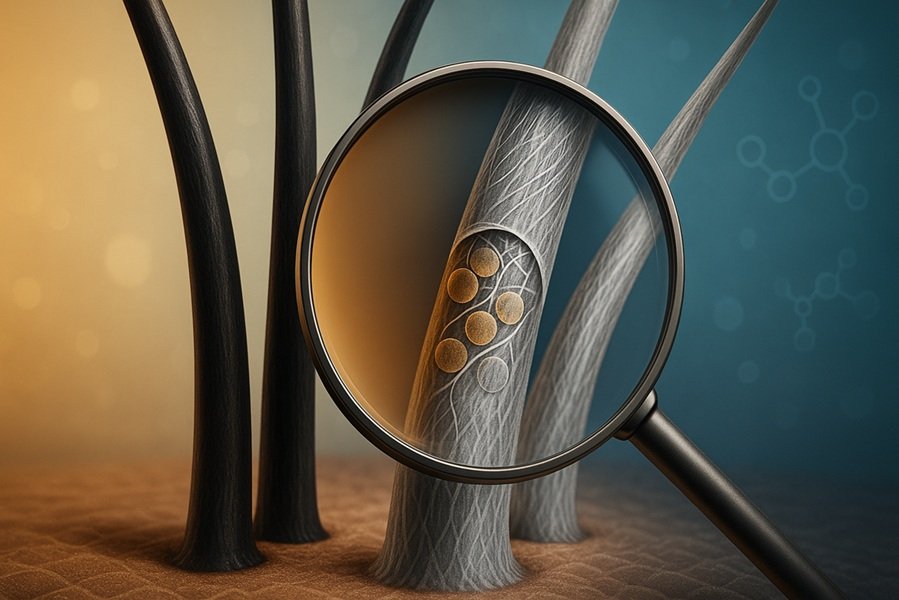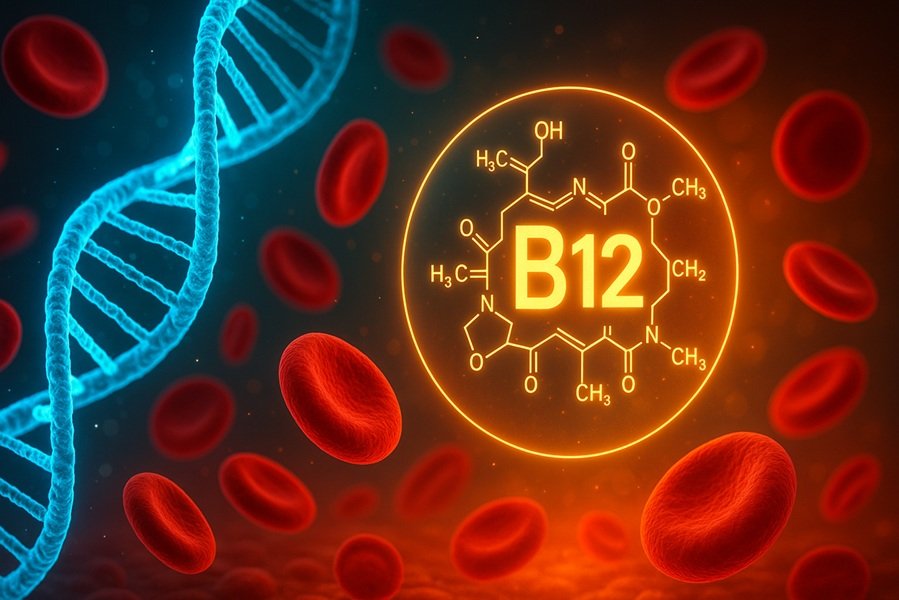
Introduction
Grey hair is often considered a natural sign of aging, typically appearing after the age of 40. However, when it occurs before the age of 30 in Asians or 25 in Caucasians, it is referred to as premature greying or premature canities.
This early loss of natural hair pigment can affect self-confidence and is often linked to genetics, nutrition deficiencies, stress, or certain medical conditions. Fortunately, with proper care and lifestyle management, premature greying can often be prevented or slowed down.
What Causes Hair to Turn Grey?
The color of human hair depends on melanin, a pigment produced by specialized cells called melanocytes located in hair follicles. When melanin production decreases or stops, hair becomes grey or white.
Here are the major causes of premature greying:
1. Genetic Factors
Genetics play the most significant role in determining when your hair turns grey. If your parents or grandparents experienced early greying, there’s a high likelihood you might too.
Studies show that genes influence the lifespan of melanocytes and their ability to produce pigment.
2. Nutritional Deficiencies
Deficiency of key vitamins and minerals can lead to early greying. Common deficiencies include:
- Vitamin B12 – Essential for healthy hair pigmentation
- Iron – Supports oxygen supply to hair follicles
- Copper – Helps in melanin production
- Zinc and Vitamin D3 – Maintain overall hair health
👉 Research Insight: A 2016 study published in the International Journal of Trichology found that Vitamin B12 and serum ferritin deficiency are directly associated with premature hair greying.
3. Oxidative Stress
Excessive free radical damage in the scalp leads to oxidative stress, damaging melanocytes. This process accelerates the loss of hair pigment.
Factors such as pollution, smoking, stress, and poor diet can increase oxidative stress.
4. Psychological Stress
Prolonged emotional or mental stress can trigger premature greying. Stress increases the release of cortisol and may deplete stem cells responsible for melanin production.
5. Hormonal Imbalances
Thyroid disorders, especially hypothyroidism and hyperthyroidism, are linked with early greying. Hormonal imbalance affects melanin production and can weaken hair follicles.
6. Smoking and Pollution
Smoking is a major external cause of premature greying. Studies have shown smokers are 2.5 times more likely to develop early grey hair due to reduced blood flow and increased oxidative damage.
Pollutants like dust, heavy metals, and toxins also damage scalp cells and interfere with melanin synthesis.
7. Chemical Hair Products
Frequent use of hair dyes, bleaching agents, and harsh shampoos can damage hair follicles. These chemicals may lead to premature pigment loss over time.
Medical Conditions Linked to Premature Greying
Certain health conditions can contribute to premature greying, including:
- Pernicious anemia (Vitamin B12 deficiency)
- Vitiligo (autoimmune destruction of melanocytes)
- Thyroid disorders
- Autoimmune diseases affecting pigmentation cells
In such cases, medical evaluation and treatment of the underlying condition are essential.
How to Prevent Premature Greying Naturally
While some causes (like genetics) can’t be changed, adopting healthy habits can help delay premature greying.
1. Eat a Nutrient-Rich Diet
Include foods rich in:
- Vitamin B12: Eggs, fish, and dairy
- Iron: Spinach, lentils, and lean meats
- Copper: Nuts, seeds, mushrooms, and dark chocolate
- Antioxidants: Berries, green tea, citrus fruits, and leafy greens
A balanced diet supports melanin production and strengthens hair follicles.
2. Reduce Stress Levels
Practice stress-relief activities like:
- Meditation and yoga
- Regular exercise
- Deep-breathing techniques
- Adequate sleep (7–8 hours daily)
Chronic stress not only affects hair color but also contributes to hair loss and breakage.
3. Quit Smoking
Smoking accelerates oxidative damage and constricts blood vessels, cutting off essential nutrients to the hair roots. Quitting smoking can slow the greying process and improve overall hair health.
4. Avoid Harsh Chemicals
Minimize the use of:
- Chemical hair dyes
- Sulfate- or paraben-based shampoos
- High-heat styling tools
Opt for natural hair colors like henna, indigo, or amla-based products.
5. Use Natural Remedies
Certain traditional remedies may help delay greying by improving scalp health and boosting melanin activity.
Amla (Indian Gooseberry)
Rich in Vitamin C and antioxidants, amla rejuvenates hair follicles. Apply amla oil or amla powder mixed with coconut oil twice a week.
Curry Leaves
Boil curry leaves in coconut oil and apply to the scalp. It helps restore pigmentation and strengthens hair.
Bhringraj (Eclipta alba)
Often called the “king of herbs” for hair, bhringraj oil promotes hair growth and darkens natural color.
Black Sesame Seeds
Rich in copper and antioxidants, eating a small amount daily is believed to slow greying.
Medical and Clinical Treatments
If premature greying is due to nutritional or medical issues, a doctor may suggest:
- Vitamin B12, Iron, or Copper supplements
- Thyroid medication (if imbalance is found)
- Topical Melanin-Stimulating Treatments
- PRP (Platelet-Rich Plasma) Therapy for scalp rejuvenation
However, results vary, and no permanent cure exists for genetically caused greying.
Myths About Premature Greying
| Myth | Fact |
|---|---|
| Plucking one grey hair makes more grow back. | False — it only damages that follicle. |
| Only older people get grey hair. | False — even teenagers can due to genetics or deficiencies. |
| Greying can be reversed completely. | Partially true — if caused by deficiency or stress, it may be reversible; genetics cannot. |
| Coloring hair causes greying. | False — but harsh dyes can damage follicles over time. |
When to See a Doctor
Consult a dermatologist or trichologist if:
- You notice sudden or rapid greying before age 25.
- You experience hair thinning or hair fall along with greying.
- There are signs of vitamin deficiency or fatigue.
A proper diagnosis can identify reversible causes early.
Conclusion
Premature greying of hair can be distressing but is often a reflection of genetics, lifestyle, or nutritional imbalances rather than an immediate health concern. By maintaining a balanced diet, managing stress, avoiding harsh chemicals, and seeking medical guidance when needed, it’s possible to delay or manage early greying effectively.
Remember, embracing your natural hair color — whether black, grey, or white — is also a sign of confidence and self-acceptance.
Medical Disclaimer
Disclaimer:
This article is for informational and educational purposes only. It does not constitute medical advice or diagnosis. Always consult a qualified healthcare professional or dermatologist before starting any supplement, medication, or treatment for premature greying or any hair-related condition. Individual results may vary.




